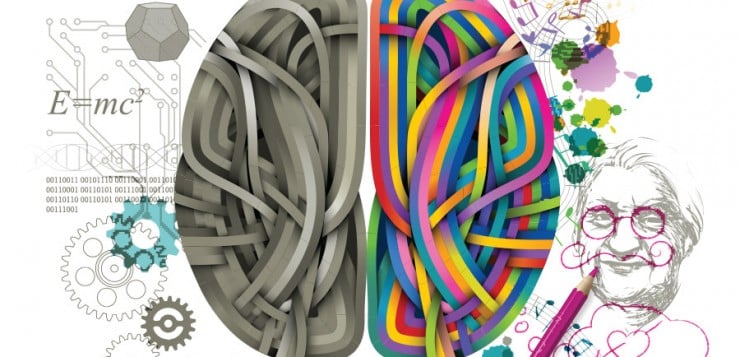As an undergrad student with a keen interest in the healthcare field, I had done quite a bit of research on physicians and surgeons prior to starting a neuro-oncology observership at Hospital X. I thought I had a good idea of what being a physician entails; what type of resilience, commitment and hard work it requires: I soon realized how blissfully unaware I was. This experience set a whole new tone to the surgical profession and to the job of a physician. Through my time in the neurosurgery clinic, I was able to attain an aerial view, along with an intimate experience of a day in the life of a neurosurgeon.
One of the reasons I decided to seek an observership with a neurosurgeon in particular, is because I have been intrigued by the brain for a very long time. Its enigmatic nature is enticing. As Wilder Penfield once said, “The brain is the organ of destiny. It holds within its humming mechanism secrets that will determine the future of the human race.” As such, neurosurgeons have a very important responsibility on their shoulders, and what sets them apart from doctors in other specialities is that they are dealing with an organ that essentially defines a person.
The brain is the life and soul of the body – the epicenter of all action. Messing with a person’s brain can forever change their identity; hence, due to the increased level of sensitivity involved, I was curious to find out how neurosurgeons interacted with their patients, and whether this interaction was different from the way physicians in other specialities interacted with their patients. Since I have not extensively observed doctors practicing in other areas, I cannot give a conclusive remark comparing neurosurgeons to other types of doctors.
What I can conclude, however, is that neurosurgeons are an extraordinary group of individuals. They are very compassionate, assertive, and disciplined, to say the very least. For example, Dr. Y, the doctor whom I primarily shadowed, wakes up every day around 4:30 am and gets into clinic around 6 am. Our bodies are not physiologically accustomed to waking up before sunrise, yet the group of doctors I shadowed have been doing so for decades. Despite their remarkable capabilities, they did not intimidate, and from what I experienced, they were extremely personable. Despite the serious and critical nature of their work, they still managed to crack a few jokes in front of their patients and even in the OR. They have trained themselves very well to manage stressful and dire circumstances, which is truly admirable.
Prior to this observership, I had painted a picture of an ideal doctor in my mind: The very best doctors, I thought, were knowledgeable, intelligent, and compassionate.
Some of the doctors I encountered were witty, humorous, and amiable in nature, while others had a more formal demeanour. Both groups of doctors were equally qualified, yet different in their own right. I wondered if the doctors who used humour and casual conversation when interacting with their patients had better patient prognosis and were able to attain more of the patients’ trust than the doctors who just cut to the chase by informing patients of their diagnosis. Many studies have identified the central role that trust plays in patient-physician relationships, and how the amount of trust a patient has for their physician can positively correlate with treatment adherence, among other important factors involved in the healing process (Pearson & Raeke, 2000).
The patients coming into the clinic had, most often than not, an unfathomable amount of physical and emotional pain, and they were essentially entrusting their lives in the hands of a complete stranger. Thus, it is obvious why patients needed to foster a sense of trust for their physician. In my opinion, one thing that helped establish a sense of trust between the two groups was when physicians exhibited complete awareness of their patient’s condition and initiated casual conversation with the patient. Illness aside, when physicians probed their patients about their personal lives, it seemed as if the patients were developing a sense of identity for themselves around the physician. Despite the fragility that was thrusted upon some patients due to their illness, these physicians instilled a sense of integrity in their patients. For the most part, the patients enjoyed being asked about their personal endeavours, and this enabled the establishment of trust between the patient and the physician.
Along the lines of trust, one commonly occurring situation I observed that strongly juxtaposed the situation described in the previous paragraph, was when medical school students, residents, or fellows went in to see the patients before the neurosurgeon did. Since Hospital X is a teaching hospital, it provides educational opportunities for many medical professionals who are at different stages in their career.
In addition to me, Dr. Y was educating other residents, medical school students, and fellows in the clinic. As a part of their training, these individuals consulted with the patients before Dr. Y did. When these individuals went in to see the patients, they often had to explain themselves and their credentials, as the patients would keep asking when they can see the ‘real doctor.’ Some patients were skeptical of and distrusting towards anyone who was not Dr. Y, and some were even reluctant to discuss their diagnosis with these individuals. One can easily empathize with these patients, as they are undergoing a very unpleasant stage in their lives and they want to get the best possible care; nevertheless, it is very important to train the medical professionals of tomorrow, and the best type of education these medical professionals can receive is within a clinical setting. One way doctors can alleviate this issue is by informing the patients beforehand that they will be seeing doctors in training prior to the ‘real doctor.’ Hopefully that can take away the element of surprise for the patients and they are more willing to trust these other capable individuals.
In addition to educating trainees in a clinical setting, educating surgical trainees in the OR is equally important. When I set foot in the OR for the first time in my life, I was quite surprised by its simplicity. The OR I went into was definitely not as fancy as the ones they show on Grey’s Anatomy, yet it felt like a very peaceful, secluded place. Aside from a few jokes that Dr. Y cracked on the side, the minimal chatter coming from the OR nurses, and the beeping of the heart rate monitor, it was a quiet setting. Two surgical residents were busy intricately cutting through and navigating the maze that is the brain, while Dr. Y was intently observing the two residents from about six feet away. When I asked Dr. Y why he was not taking any part in the action, he explained that he had a very hands-off approach when training surgical residents. He would always observe his trainees closely, and occasionally ask them to explain what they were doing (i.e., explain the surgical procedures and their next steps). He would only step in when needed. I thought this was extremely wise, as the doctors of tomorrow need all the surgical experience they can get before they are off on their own.
Outside of the OR, another thing I noticed during my observership is the tremendous amount of importance a physician can have on not only a patient’s life, but on the lives of their family as well. There were many instances where Dr. Y concurrently treated multiple members of the same family. In one particular instance, Dr. Y had treated two sons and their mother, who were all diagnosed with a familial neurological syndrome. The mother and Dr. Y had known each other for twenty-three years due to the illness, through which Dr. Y had become an integral part of that family’s life, even long after the treatment was administered. When the mother had come in for a follow-up appointment, she and the doctor greeted each other like they were two old friends reconnecting with one another after a long time. It was one of the most heart-warming things I had ever witnessed.
Something else I was able to witness during my time in the clinic is all the cooperation and teamwork that occurs in a clinical setting. Caring for a patient was truly a team effort, and the team members did not just end at doctors and nurses. For example, before treating certain patients at Hospital X, there is a conference held every Friday to discuss impending patient cases. Attendees at these conference meetings include neuro-oncologists, physicians, radiation oncologists, radiation therapists, and physicists. This kind of collaboration and involvement of professionals from various different fields exemplifies the changing face of medicine. Patients can have comfort in knowing that their care is in the hands of many reliable individuals, all contributing to the patient’s course of treatment in a unique, yet meaningful way.
The most reassuring thing I discovered during my time as an observer student is that surgeons are constantly seeking to improve themselves and find out ways in which they can provide better treatment for their patients. For instance, Dr. Y had been practicing neuro-oncology since 1985; however, he recently took up a new speciality: palliative care. When I asked him why he had decided to take up a new speciality after having practiced neuro-oncology for so long, his humble response was that he had a “soft-spot for the underdogs: patients who could not be helped by traditional medicine.”
I have been able to become acquainted with Dr. Y by spending three odd months with him at Hospital X, and despite having so many commitments, such as educational and research appointments, patient consults, and surgeries, he made it seem as if he was never short on time; time was never a limiting factor for him. The fact that he found time out of his utterly busy schedule to reach out to patients struck by different kinds of misfortune illustrates his commitment to patient care.
My original goal to become a physician seemed very short-sighted after this observership. Prior to the observership, I just had a bull’s-eye goal of getting into medical school, attaining an MD, and becoming a doctor. I left it at that. However, I realized that caring for the ill requires you to have more than just a certification; you have to constantly strive to better yourself so that you can be the best possible help to others.
My dad always lectured me on the importance of being a life-long learner and through this experience, I realized exactly what he was referring to. The doctors that I shadowed were life-long learners, constantly hungry for new knowledge. Despite the arduous nature of their work, their passion always overpowered their fatigue, and this is something truly commendable. Being an impressionable pre-med student, I would say that the doctors whom I had the pleasure of observing have become role models for me; they have become the type of medical professionals I will strive to become.
Overall, this observership was a very worthwhile and holistic experience. To be truthful, I was nervous about how this experience would unfold, as I am only a second year undergrad student who just started her introductory neuroscience course this semester. But having had the opportunity to follow around accomplished neurosurgeons as well as scrub in for my very first surgery, to say that all this has further cultivated my interest in the brain and in the medical field would be the biggest understatement. This experience has been a journey full of new insights and discoveries, and I am beyond grateful for it. This observership holds monumental qualities, for I will remember this experience for years to come, as I embark on my own medical education endeavours.
Contributed by:
Aditi Desai
Aditi is a second year undergrad student at the University of Toronto. She recently completed a neurosurgery observership at one of the University Health Network hospitals, and wrote a paper on the world of neurosurgery from a student’s perspective. This article is an excerpt from her comprehensive paper.








Discussion3 Comments
Great and informative post,Aditi. I liked it. You’ve explained it as an experienced neurosurgeon.As you are a student of neurosurgery you may be interested in visiting my blog on pre residency fellowship neurosurgery too. Happy blogging.
This is a great read. Thanks for sharing this detailed information.
Uniswift.ae, your top multi-sports store, offers premium gear for the judo game. Our high-quality judo equipment ensures durability and comfort, enhancing both training and competition experiences. Trust Uniswift.ae to provide the best products for your judo practice and elevate your performance.